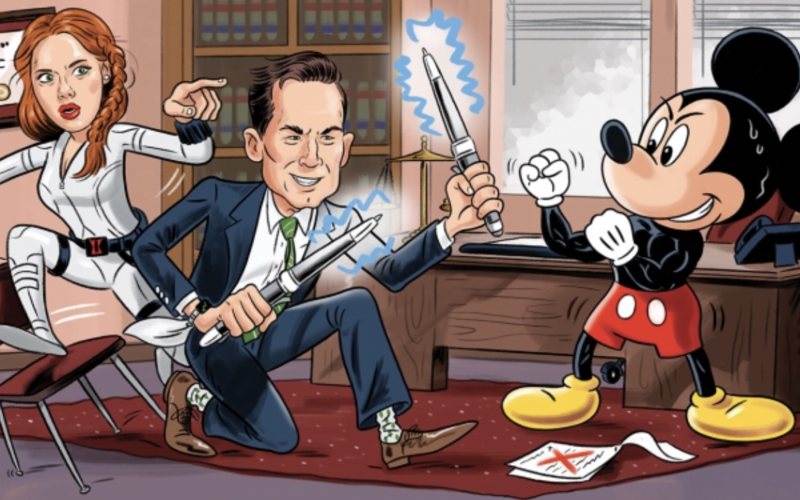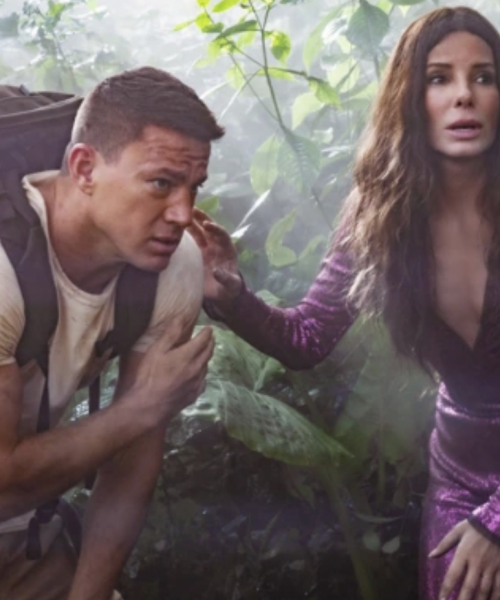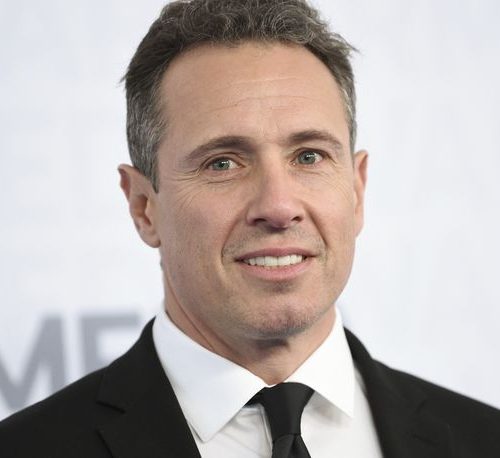BY ERIQ GARDNER | HollywoodReporter.Com
Troy Warren for CNT #Business #Entertainment
In the past, a little ambiguity in entertainment contracts wasn’t necessarily a bad thing, but Disney’s reaction to Scarlett Johansson has lawyers less willing to leave things between the lines.
When Scarlett Johansson sued Disney on July 29 over her Black Widow pay, one community in Hollywood took the development especially personally: the ranks of transactional attorneys who negotiate deals for top talent. For many of them, the suit over the film’s concurrent release in theaters and on Disney+ not only highlights the complexity of compensation in the streaming era, it’s also evidence of massive disruption to relationships. “All of a sudden, [the studios are] acting like tech companies,” says Matt Galsor, a Greenberg Glusker partner who reps Chris Hemsworth, Tom Cruise, and Anthony and Joe Russo. Adds Leigh Brecheen, who reps Conan O’Brien and John Oliver at Brecheen Feldman, “The Hollywood I grew up in, people had an understanding that terms were generally understood and you’d be dealing with the people on the other side of the table again and again. That is gone.”
While dealmakers weren’t all that surprised that studios might bend the rules to the advantage of their affiliated streamers, and many expect “day-and-date” releases to eventually become more routine — after all, understanding the industry’s undercurrents and developing strategies to protect the client is part of the job — it’s Disney’s reaction to Johansson that’s got the community buzzing.
Contrary to what outsiders might expect about Hollywood dealmaking, not every point in an actor’s contract is negotiated to its zenith. A lot of shorthand is used, and the parties accept a great deal of ambiguity almost by design. In fact, as one top talent lawyer puts it (anonymously, of course, to avoid this quote ever being used against clients in court): “If you’re going to ask for something, better be sure you’ll get it. Often, the smart ones conclude it’s in the best interest to not raise the issue. The last thing you wish to create is clarity that you don’t have what you wanted.”
Take Johansson’s situation. In some respects, she may be in a better legal position than other actors upset at how streaming has interfered with the expectation of backend bonanzas. Although it wasn’t highlighted in her suit, her team plans to stress that her Black Widow contract didn’t include a standard “distribution control” provision, which gives studios discretion on how they license a motion picture. Johansson’s camp is also emphasizing a 2019 email from Marvel’s chief counsel Dave Galluzzi stating, “We totally understand that Scarlett’s willingness to do the film and her whole deal is based on the premise that the film would be widely theatrically released like our other pictures. We understand that should the plan change, we would need to discuss this with you and come to an understanding as the deal is based on a series of (very large) box office bonuses.”
But look closely at that email. Even if it amounts to an enforceable amendment for a theatrical release (rather than just consultation), it doesn’t explicitly guarantee “exclusive” theatrical release. And, even if implicitly it does, how long must it play in theaters until Black Widow can show up on Disney+? That’s a pretty important point to gloss over, and yet, it’s that kind of indefiniteness that’s been rather characteristic of the paradigmatic Hollywood deal.
“He was saying this is our plan,” says one attorney when reading the Marvel email. “That’s a red flag. What do you mean it’s our ‘plan’? That’s our deal. Plans change. Agreements don’t.”
Johansson will now attempt to convince a judge (or arbitrator) to heed industry custom when interpreting what she was promised, which puts Disney in the position of shrugging its shoulders at the concept of any unstated understanding while telling a judge, “The contract is the contract. It’s pretty clear that Disney complied with its express obligations.”
The merits of Johansson’s legal case can and will be debated, but what’s inarguable is how talent reps are now looking at this spectacle and drawing hard lessons. The takeaway, as they see it, is that Disney, not unlike one of those rapacious tech giants, is prioritizing the rule of contract over the rule of relationship. And that economic incentives and measures of success no longer are quite aligned in the movie business.
This assessment figures to have some ramifications going forward. Yes, the Black Widow case could spur more lawsuits from others, but its biggest impact may end up being on the psyche of dealmakers. Everyone is now suddenly realizing that ambiguity in contracts has become less tolerable. As for tomorrow’s task of arriving at fair compensation models for clients, perhaps the lesson is a bird in the hand is better than two in the bush. Or, as Peter Nichols at Lichter Grossman says, “One might be better served by allocating leverage to negotiating the largest fixed fee possible rather than asking for buyouts or bonuses.”
In Other NEWS



































